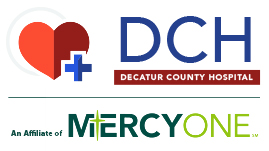ADVANCE DIRECTIVES
Advance directive (AD) is a general term that refers to your verbal and written instructions about your medical care in the future, should you be unable to speak for yourself. Each state has its own law governing the use of ADs. There are two types of advance directives: living will and durable power of attorney for health care.
Though this is a difficult topic to discuss, it’s often helpful for you to make plans long before decisions need to be made. Making these arrangements and decisions before you are very ill can insure that your wishes are clear and followed. It also helps family members when they know your wishes in advance.
We ask all patients over 18 years of age admitted for an overnight stay at DCH if they have an advance directive. If you have an AD, you should bring a copy of it when you come to the hospital. As long as you communicate your decisions, your advance directives will not be used and you can accept or reject any medical treatment.
LIVING WILL
A living will puts your wishes about medical care at the end of life, into a written statement. Each state dictates when a living will goes into effect and can limit the treatments to which the living will applies. A person’s right to accept or reject treatment is protected by both federal and state laws.
DURABLE POWER OF ATTORNEY FOR HEALTH CARE
A durable power of attorney for health care is a document used to appoint someone you trust to make medical decisions. In many states, the person you appoint through a durable power of attorney for health care may speak for you anytime you cannot make your own medical decisions, not only at the end of life.
DOWNLOAD FORMS TO ESTABLISH ADVANCE DIRECTIVES FROM THE IOWA STATE BAR ASSOCIATION:
- Living Will Form
- Combined Living Will and Medical Power of Attorney
- Powers of Attorney for Health Care Decisions
NOTE: These are legal forms and we suggest you consult with your legal representative to complete.
IOWA PHYSICIANS ORDER FOR SCOPE OF TREATMENT (IPOST):
This document allows you an opportunity to communicate wishes for treatments, including: resuscitation, scope of treatment, artificial treatment, etc. This document is used when an individual who is frail and elderly or have a terminal illness. Please ask your physician if this document is appropriate for you.
PSYCHIATRIC ADVANCE DIRECTIVES:
Relatively new legal instruments, psychiatric advance directives (PADs) are used to document a competent person’s specific instructions or preferences regarding future mental health treatment, in preparation for the possibility that the person may lose capacity to give or withhold informed consent to treatment during acute episodes of psychiatric illness. Almost all states permit some form of legal advance directive for healthcare, which can direct at least some forms of psychiatric treatment.
For more information about psychiatric advance directives, visit the National Resource Center on Psychiatric Advance Directives website.

